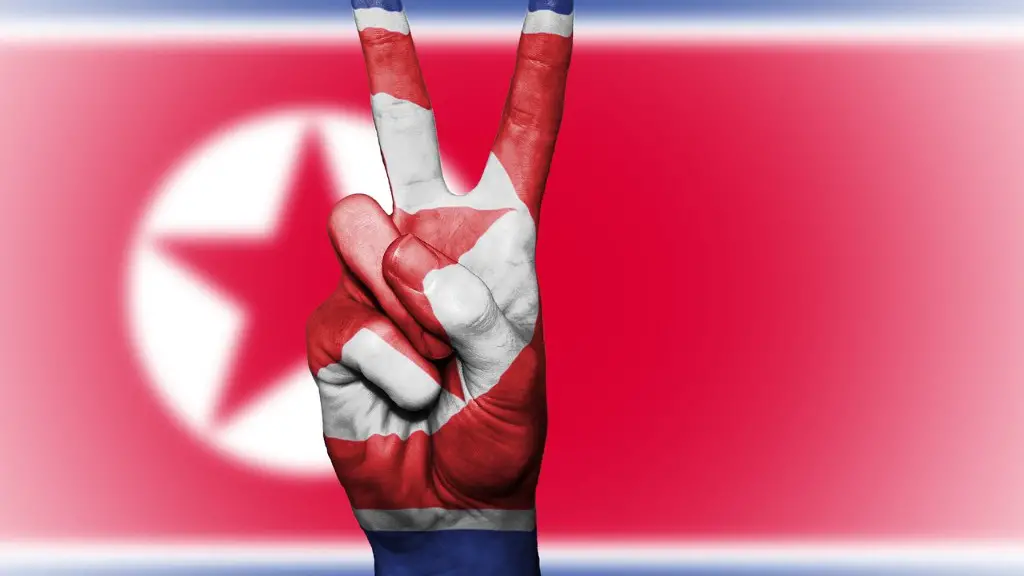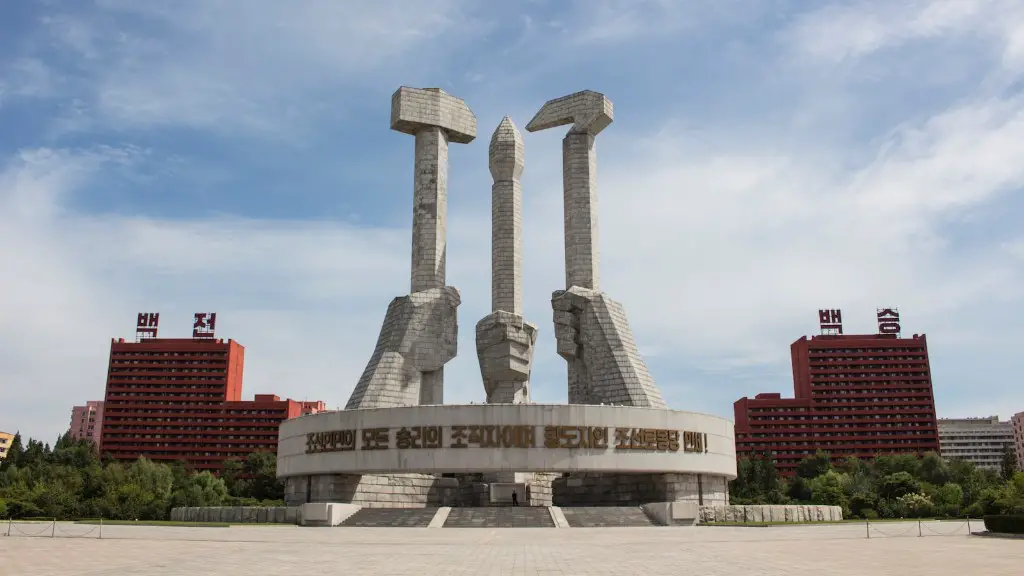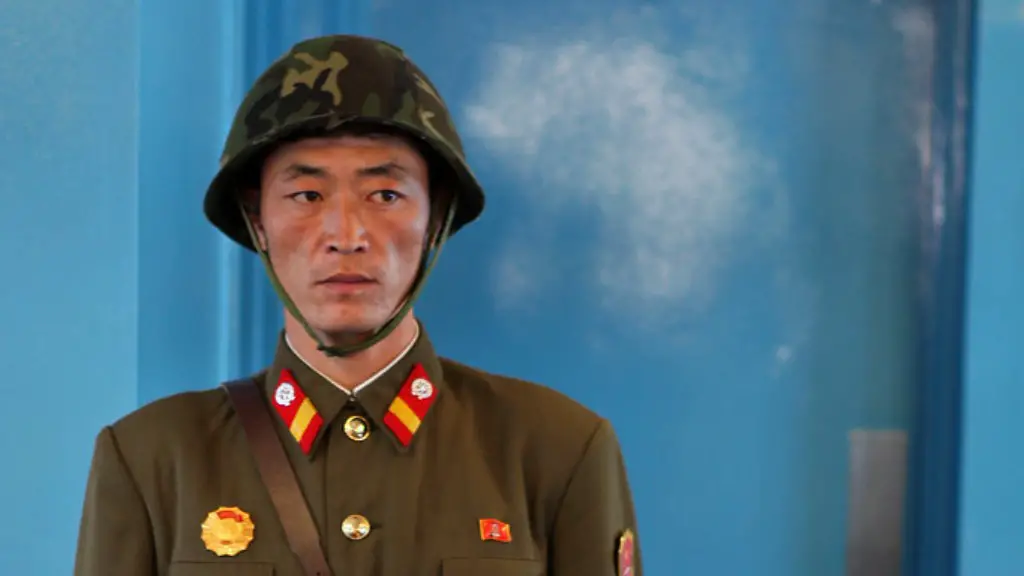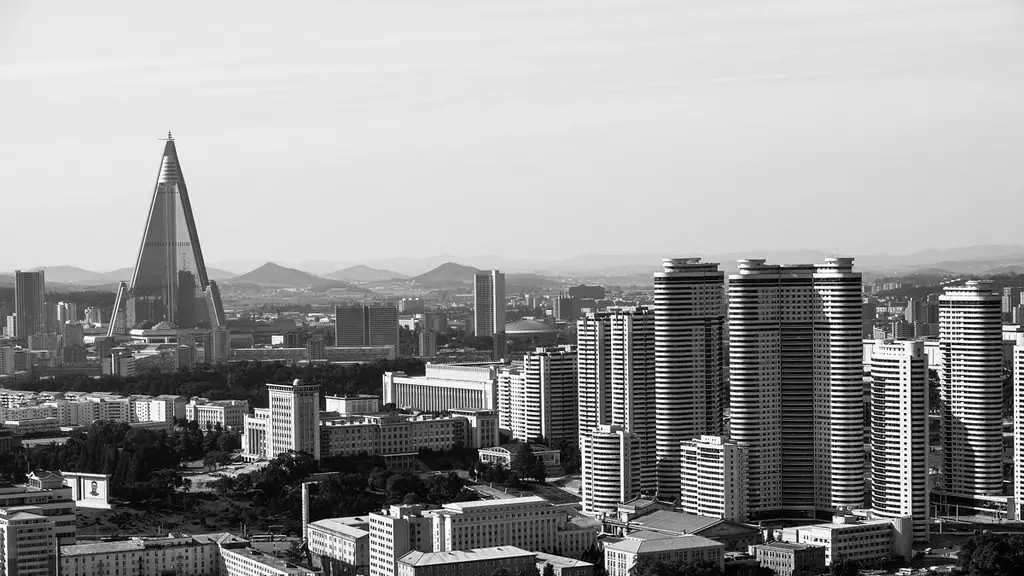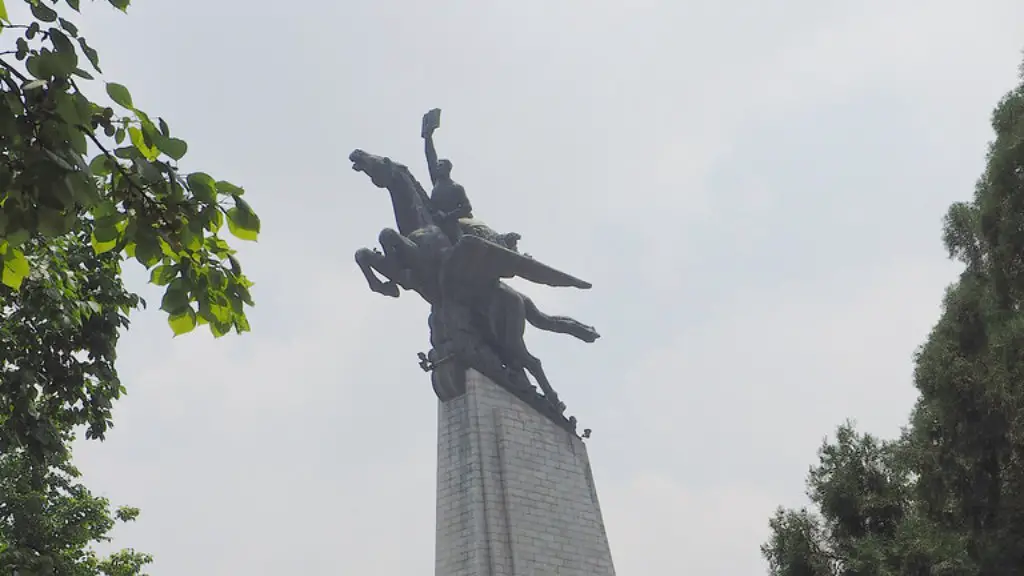North Korea’s History with Nuclear Tests
North Korea has been the subject of a number of nuclear tests, both of nuclear weapons and of other nuclear-capable weaponry. This has led to international concern and condemnation of their actions. North Korean nuclear tests have marked a period of increasing nuclear capability and threat that has been extensively documented. Starting in 2006, North Korea began a series of tests and has now conducted a total of six nuclear tests.
The early years of North Korea’s nuclear program began in the 1980s with a number of research aims and ambitions to create weapons of mass destruction. These ambitious research efforts were supported by assistance from the Soviet Union and China. In the early years there were a number of unsuccessful tests and incidents, but eventually in 2006 North Korea was able to successfully conduct its first nuclear test involving an underground detonation of a plutonium-based device.
The test caused a wave of international condemnation and was seen as a serious breach of international security law. This was the start of a period of increasing activity from North Korea in terms of nuclear tests, as well as aggressive rhetoric from the North Korean leadership. In the years since 2006, North Korea has conducted five more nuclear tests and numerous ballistic missile tests, further increasing global concern and condemnation.
North Korea’s Motivations
The motives behind North Korea’s tests are a subject of much discussion and speculation. For some observers, North Korea has simply been seeking to develop a basic nuclear weapons capability, in order to remain relevant in the global security landscape and to gain leverage in negotiations with foreign powers. Others see North Korea’s actions as an attempt to bolster the legitimacy of the regime and to strengthen the security and survival of the state.
As well as political and military motivations, North Korea’s nuclear tests have been motivated by economic incentives, such as access to foreign aid and resources. In some cases, the tests have been used to increase the publicity of the regime and to generate a sense of national pride and faith in the leadership.
North Korea also has an interest in testing its weapons technology and advancing its military capabilities. In some cases, these tests have been aimed at ensuring that North Korea can develop more sophisticated weapons and more powerful delivery systems, such as missiles and submarines. This has caused alarm among international powers, who worry that North Korea could use these weapons to launch a devastating attack.
The International Response
The international response to North Korea’s tests has been varied and often contradictory. The United Nations has been particularly aggressive in its response, imposing a number of sanctions on North Korea in an attempt to dissuade them from further provocations. The sanctions have had limited success, but have still managed to restrict North Korea’s access to a number of key resources and supplies.
Other countries have responded with a mix of condemnation and diplomatic engagement. In some cases, the international community has attempted to negotiate with North Korea, offering incentives in exchange for a cessation of the tests. However, these negotiations have not been particularly successful and have often been hampered by North Korea’s reluctance to give up its nuclear ambitions.
The international response has been further complicated by the fact that North Korea’s nuclear tests have generated a number of potential security concerns for Western powers, as well as its neighbors in the region. This has led to calls for increased cooperation and coordination between the international community to ensure that North Korea does not further provoke its neighbors or threaten the security of the world.
A Growing Capability
Over the years, North Korea’s nuclear tests and capability have continued to grow. This has led to increasing international concerns and condemnation, as well as the imposition of additional sanctions from the United Nations.
This growth in capability is partly due to the tests themselves, which have allowed North Korea to gain further insights into nuclear technology, and to improve the effectiveness of its weapons and delivery systems. In some cases, these tests have also been used to demonstrate North Korea’s military capabilities to potential adversaries, such as the United States.
This growing nuclear capability has been a major source of concern for the international community, and its implications are still not fully understood. North Korea’s ability to deploy nuclear weapons is still uncertain, but the risk of further provocations remains a serious concern.
Political Implications
The development of North Korea’s nuclear weapons capability has implications not only for military and security issues, but also for the regional political landscape. North Korea’s nuclear tests have raised fears of a regional arms race, and have led some regional powers to increase their own military spending, in an effort to match North Korea’s capabilities.
There have also been fears that North Korea’s nuclear programs could be used for political leverage, as a way to gain concessions from the international community or from its neighbors in the region. This has led to greater uncertainty and instability in the region, and has further complicated the already complex political landscape.
Finally, North Korea’s tests and capabilities have fueled a great deal of discussion and debate, not only in the region but also among international powers. This has led to a number of diplomatic initiatives, both within the region and on a global scale, as the international community attempts to contain North Korea’s nuclear activities.
North Korea’s Impact on the Global Nuclear Landscape
North Korea’s nuclear tests and capabilities have had a profound impact on the global nuclear landscape. They have led to increased tension and instability in East Asia and have caused alarm among the international community. The tests have led to the imposition of sanctions from the United Nations, as well as negotiations and diplomatic initiatives from other states.
The threat posed by North Korea’s nuclear program has also caused an increase in global spending on nuclear weaponry, as states seek to increase their own capabilities in order to better safeguard against the threat. This has led to a new arms race, as states seek to strengthen their own defenses and to maintain the balance of power in the region.
Overall, the impact of North Korea’s nuclear tests is still not fully understood, and much of the discussion and debate on the issue will continue in the years to come. However, it is clear that North Korea’s nuclear ambitions have had a profound and far-reaching impact on the global nuclear landscape.
Public Opinion
Public opinion on North Korea’s nuclear tests has been varied and often divided. Whilst many people see North Korea’s actions as a direct threat to global security and stability, others see them as a necessary step towards maintaining a balance of power in the region. Similarly, some people have expressed an understanding of North Korea’s political motivations, whilst others have condemned their behavior as reckless and irresponsible.
At the same time, there has been a growing call for greater cooperation and coordination between the international community, in order to better contain and manage the threat posed by North Korea’s nuclear program. This has led to a number of initiatives aimed at ensuring that North Korea does not breach international security laws, or take further steps to destabilise the region.
Overall, public opinion remains divided on the issue of North Korea’s nuclear tests, with many people having nuanced views on the issue. As the international community continues to grapple with this challenging issue, it is clear that North Korea’s actions will have profound implications for the global nuclear landscape.

